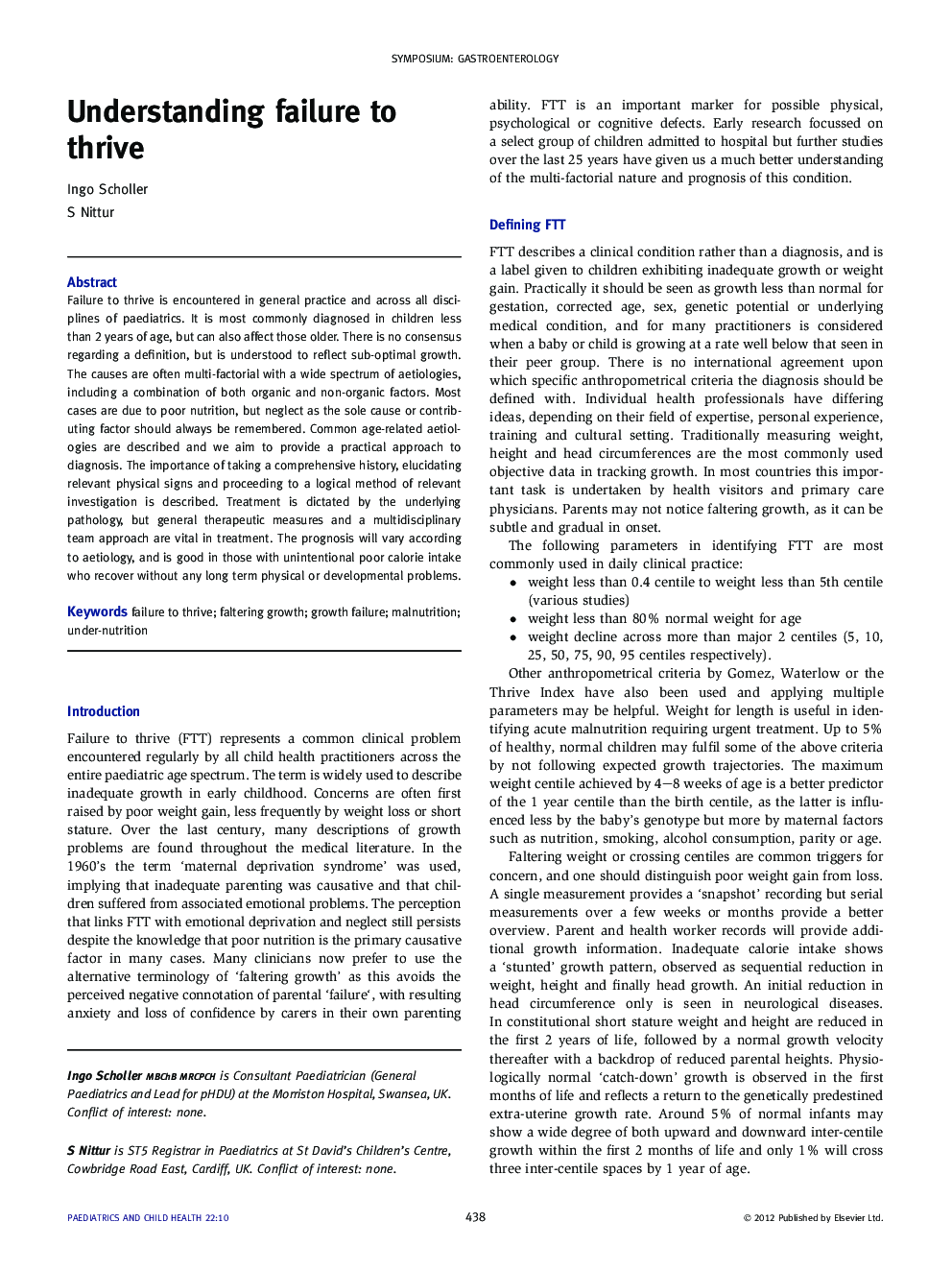| Article ID | Journal | Published Year | Pages | File Type |
|---|---|---|---|---|
| 4172498 | Paediatrics and Child Health | 2012 | 5 Pages |
Failure to thrive is encountered in general practice and across all disciplines of paediatrics. It is most commonly diagnosed in children less than 2 years of age, but can also affect those older. There is no consensus regarding a definition, but is understood to reflect sub-optimal growth. The causes are often multi-factorial with a wide spectrum of aetiologies, including a combination of both organic and non-organic factors. Most cases are due to poor nutrition, but neglect as the sole cause or contributing factor should always be remembered. Common age-related aetiologies are described and we aim to provide a practical approach to diagnosis. The importance of taking a comprehensive history, elucidating relevant physical signs and proceeding to a logical method of relevant investigation is described. Treatment is dictated by the underlying pathology, but general therapeutic measures and a multidisciplinary team approach are vital in treatment. The prognosis will vary according to aetiology, and is good in those with unintentional poor calorie intake who recover without any long term physical or developmental problems.
